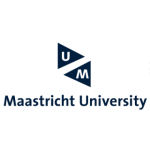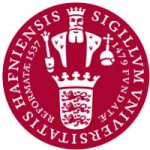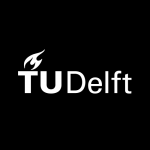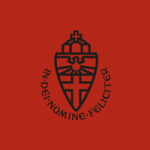项目介绍
JOB DESCRIPTION
Are you interested in doing a PhD in an interdisciplinary team environment? Are you curious and creative? Do you want to live in a beautiful city in Europe while having the opportunity to do in-depth ethnographic fieldwork abroad?
Job Description
The Department of Society Studies is looking for a PhD candidate to undertake exciting ethnographic work about hospital practices. You will be part of a new team doing a research project focusing on the increasingly relevant and escalating issue of clinical waste. The project is called Make Do Medicine.
The focus of this European Research Council funded project is on hospitals and clinics, which have become sites of disposability in recent years. Attempts to address this can be top-down and technocratic, often still reliant on a mode of further production. Make Do Medicine takes a different route into the problem. It focuses on creative practices already happening in the clinic, involving making the most of existing materials. You will be part of a team conducting fieldwork across five clinical sites around the world where such improvisations are highlighted due to different constraints. For your PhD you will undertake 10 months participant observation in a hospital, community healthcare centre and/or rural clinic in Ghana (preferred, other sites can be considered if appropriate for project and there is access). Often hospital ethnographies in the Global South are framed through the lens of scarcity. There is another story to tell, which looks further into improvisation and the conditions for this work.
You will work in a team environment with the Principle Investigator (PI) (Associate Professor Anna Harris), two post-docs, a project manager and research assistants. Sharing research material and comparison with the other cases will be part of the project. Within the context of the group project, you will have room to tailor your research to your own interests and background. As the PhD candidate you will specifically be involved in:
- Setting up your project based on your own contacts and/or those of the PI
- Creating a research plan
- Writing ethics applications with the team and adhering to good data management practices
- Undertaking 10 months fieldwork in Ghana (or another related site)
- Writing a dissertation, including co-authoring 1-2 publications
- Making digital sensory material to accompany the project’s open dataset
- Participating in group meetings, events and workshops
- Optional, though suggested: teaching 0.1 or 0.2 fte including Bachelor courses and/or thesis supervision
In this role you will learn how to further your ethnographic research practice, writing and teamwork skills while further trainings will be provided through the local and national Graduate Schools. There is the option to undertake teacher training and take Dutch language classes.
In sum, you will be able to do a PhD in an exciting team research project with considerable scope for creativity, conducting research with the potential for significant societal impact in relation to sustainability in healthcare, while working on the cutting edge of ethnographic methodologies.
What we are looking for
All team members hired in Make Do Medicine project will be chosen because they have evidence of qualitative research skills (especially ethnography), so that we can quickly build together the more innovative methodological elements of the team project. For this particular position we are looking for someone who is open, willing, even excited about doing a PhD in a team setting and engaging in creative methodologies. Specifically we are looking for someone who has:
- Ethnographic fieldwork experience (necessary)
- English language competency, C1 level, academic English (necessary).
- A completed Masters’ degree (by August 31st 2024) in relevant fields, such as the social science disciplines of anthropology, sociology, science and technology studies (necessary)
- Is willing to move to Maastricht or the nearby area (necessary)
- Is willing to engage in creative methods, meet deadlines and work towards shared goals (necessary)
- Enjoys writing and exploring its craft (preferred)
- Has skills or interests in video, podcasts, photography, sound or another multimodal research method (optional)
What we offer
As a PhD at the Faculty of Arts and Social Sciences, you will be employed by the most international university of the Netherlands, located in the beautiful city of Maastricht. In addition, we offer you:
- Good employment conditions. The position is in graded in scale P according to UFO profile PhD, with corresponding salary, based on experience, ranging from €2770 to € 3539 gross per month (based on a full-time employment of 38 hours per week). In addition to the monthly salary, an 8.0% holiday allowance and an 8.3% year-end bonus are applicable.
- An employment contract for a period of 12 months with a scope of 0.8 FTE (with an option to make this 1.0 fte with teaching tasks). Upon a positive evaluation, an extension of a further 3 years will follow.
- Candidates will be asked to move to Maastricht or nearby. At Maastricht University, the well-being of our employees is of utmost importance, we offer flexible working hours and the possibility to work partly from home if the nature of your position allows it. You will receive a monthly commuting and internet allowance for this. If you work full-time, you will be entitled to 29 vacation days and 4 additional public holidays per year, namely carnival Monday, carnival Tuesday, Good Friday, and Liberation Day. As an inclusive employer UM offers the chance to substitute these dates for other religious holidays. If you choose to accumulate compensation hours, an additional 12 days will be added. Furthermore, you can personalize your employment conditions through a collective labor agreement (CAO) choice model.
- As Maastricht University, we offer various other excellent secondary employment conditions. These include a good pension scheme with the ABP and the opportunity for UM employees to participate in company fitness and make use of the extensive sports facilities that we also offer to our students.
- The Dutch language is not a requirement for this position, however learning the language is always encouraged and the Faculty/UM provides free language classes.
- Last but certainly not least, we provide the space and facilities for your personal and professional development. We facilitate this by offering a wide range of Graduate School training programs and supporting various well-established initiatives such as ‘acknowledge and appreciate’.
The terms of employment at Maastricht University are largely set out in the collective labor agreement of Dutch Universities. In addition, local provisions specific to UM apply. For more information, click here.
Maastricht University
Why work at Maastricht University?
At Maastricht University (UM), everything revolves around the future. The future of our students, as we work to equip them with a solid, broad-based foundation for the rest of their lives. And the future of society, as we seek solutions through our research to issues from all around the world. Our six faculties combined provide a comprehensive package of study programmes and research.
In our teaching, we use the Problem-Based Learning (PBL) method. Students work in small groups, looking for solutions to problems themselves. By discussing issues and working together to draw conclusions, formulate answers and present them to their peers, students develop essential skills for their future careers.
With over 22,300 students and more than 5,000 employees from all over the world, UM is home to a vibrant and inspiring international community.
Are you drawn to an international setting focused on education, science and scholarship? Are you keen to contribute however your skills and qualities allow? Our door is open to you! As a young European university, we value your talent and look forward to creating the future together.
Click here for more information about UM.
Faculty of Arts and Social Sciences
The Faculty of Arts and Social Sciences FASoS is a close-knit community of approximately 250 staff members and 2100 students. During breaks and before meetings, you can often find us at our favourite local coffee spot Bandito Espresso.
Communication lines within our faculty are short and colleagues are always ready to assist each other. FASoS consists of a highly international student population and a significant part of our staff comes from abroad. Our faculty offers four bachelor programs, eight masters programs and two research master programs that are all characterized by their interdisciplinary approach.
Our research institute studies societies and cultures as they have developed in the modern and contemporary periods. We adopt a radically interdisciplinary approach, analysing the interconnections between Europeanization, globalization, scientific and technological advancement, political change, and cultural innovation.
In addition to teaching and research, our colleagues enjoy expressing themselves creatively. They create podcasts, write poetry as well as fiction.
Working at FASoS means working in a challenging yet informal environment. We believe in crafting your own career path and are always ready to help you in making the most of your job. For more information about FASoS, you can visit our website FASoS
Department and Research Group
The PhD will be embedded in the Department of Society Studies at FASoS. This department brings together scholars with a social science and humanities profile. It plays a key role in the Faculty of Arts and Social Sciences as a provider of knowledge and expertise in the interdisciplinary fields of Science, Technology and Society studies (STS) and Globalisation, Transnationalism and Development research. Department members across these fields share an interest in sociological, anthropological and/or mixed-methods approaches, with a strong tendency towards ethnographic methodologies. The PhD will also be a member of the Globalisation, Transnationalism, and Development (GTD) research group. Researchers in the GTD research program are interested in, among other themes, globalisation, sustainability, and the transnational production of knowledge and culture. Within this supportive research community there is significant work from, with and about Ghana.
Doing a PhD in the Netherlands, applying from abroad?
For those unfamiliar with the Dutch PhD system, it is the norm to take four years to complete research and submit a thesis comprising of either a monograph or chapters that can be published articles. It is a full-time research degree, with only optional course work. We encourage candidates to take up the optional 0.2 fte teaching. PhD candidates are paid a salary and receive benefits along with bonuses given annually. Candidates who need to relocate may be eligible for compensation and international candidates may be eligible for the 30% rule which reduces tax paid. Read more at: https://www.maastrichtuniversity.nl/faq-life-netherlands
Maastricht, where we are located, is itself a warm and welcoming city. The city is known for its excellent food and shops, and cultural scene. The founding city of the EU is an international hub with inhabitants from around the world. English is widely spoken, as are other languages, creating a unique and vibrant international community. Thanks to Maastricht’s central position in Europe, it is only a short distance away from Belgium, Germany, France and the rest of the Netherlands with dense pubic transport networks. The city is family-friendly and possesses excellent schools.
Curious?
We encourage you to apply for this position! Are you interested but still have questions? Feel free to contact Ludovica Pagliara at ludovica.pagliara@maastrichtuniversity.nl for more information (after July 1). Do you have any questions regarding the procedure, please contact Vicky Sterk at vicky.sterk@maastrichtuniversity.nl or +31646169946.
Applying?
Or are you already convinced and ready to become our new PhD in anthropology of medicine? Apply now, no later than August 21, 2024, for this position.
Please upload:
- A 2-page CV including publication details (if any) and the contact information of 2 referees (e.g. Masters supervisor)
- A 2-page document clearly addressing each of the 4 questions below.
- Why do you want to do a PhD?
- How does this particular PhD relate to your previous work, interests and/or future aspirations?
- What is your personal relationship to practices such as Do-it-Yourself, making, repurposing or upcycling?
- What do you think is an important issue to research in relation to clinical waste?
The first interviews take place on Wednesday 11th September 2024. If necessary, the second interviews will preferably be held two weeks later. A short assignment will be given to you if you make the interview round, and a reference check will be part of the application procedure.
The vacancy is open for internal and external candidates. In case of equal qualifications, internal candidates will be prioritized.
Maastricht University is committed to promoting and nurturing a diverse and inclusive community. We have staff and student networks like Female Empowerment UM FEM, LGBTQ+ student and staff network UM Pride, Parents and Carers PAC network, and UnliMited Network for students and staff with a disability and/or chronic conditions, or who are neurodiverse. We believe that diversity in our staff and student population contributes to the quality of research and education at UM, and strive to enable this through inclusive policies and innovative projects led by teams of staff and students. Please let us know if you have any accessibility needs and how/if we can facilitate the application process for you.
联系方式
电话: +31 43 388 2222相关项目推荐
KD博士实时收录全球顶尖院校的博士项目,总有一个项目等着你!






